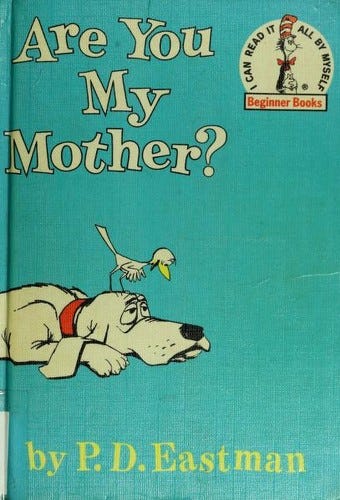I was raised in the church of primary texts and with the liturgy of close reading. The former we’ll get into some other time, but the latter often stops me dead. Consider, for instance, this line from “The Morning” newsletter of the paper of record, discussing the importance of Kamala Harris’s VP choice:
“She will be picking a partner who would help her govern.”
Okay. Fine, whatever. But stop. Let’s do a little though exercise and swap in some other names in place of that “she.”
Bill Clinton will be picking a partner who would help him govern.
Richard Nixon will be picking a partner who would help him govern.
Ronald Reagan will be picking a partner who would help him govern.
It lands a little differently, does it not? (I almost used George W. Bush, but arguably he did in fact just that, much to the detriment of all, particularly the people of Afghanistan and Iraq.)
Let’s try another:
Hillary Clinton will be picking a partner who would help her govern.
Yeah, I can see that in print. You get the point.
The other day I was walking my dog in my neighborhood and saw a woman with a baby in a stroller also out for a walk. Years ago I was that woman—I would not have left my house for a walk without my baby, because my baby and I were the only people in the house. If I was out in the world without my baby, it was because I was paying someone or someone was doing me a favor, and if I saw people I knew when I was out in such a state, their first question was usually “Where’s X?” (where X = my offspring). But often they didn’t have to ask because my baby was with me. I was, wherever I went, a mother.
That doesn’t happen any more. My kid is old enough that people I know don’t expect him to be with me at all times. I am old enough that I have begun to acquire the invisibility cloak of age. People might assume I am a mother, but that would require that I register enough for them to pursue a line of thought about me that far.
What you see, of course, is a function of who you are. That is true nowhere more than online, where algorithms tailor content to your taste, and the more you engage, the more you teach the algorithm what you like. We call it “living in a bubble,” but that’s a poor metaphor for life online. We live, instead, at the end of a series of highly selective filters, as if we pulled only the fibers we liked from an enormous shop and then wove a tapestry from them, one with the pictures we most liked to see.
My filters, for instance, bring me the New York Times and a lot of people who like to argue with the Times, and thus I spend some time every morning reading their newsletter and then ranting about the picture they paint of the world. I do not know precisely how other people spend their time while drinking their coffee in the morning, though I am dimly aware that not everyone drinks coffee.
This morning my no-longer-a-baby asked me why Hestia was such an important goddess when she was in charge of such boring things.
Let that sink in for a moment.
In fact, I always thought she was kind of boring, too. Who wants to guard the hearth when other people are out there turning people into spiders or cavorting about with various animals or even getting taken to the underworld?
I pointed out that she was in charge of a lot of things we don’t regard very highly in the world but that most people still want (it is nice, at times, to come home to a cozy house and a hot meal, even if you’re an adventurer). It is possible probable I lectured a bit.
I draw no conclusions here, except that I am very tired of all the arguments I could make about everything I have said.
In other news, I’m writing an adorable new newsletter for my job, and the first issue is free. If you want some links and some jokes about libraries, tech, and copyright, you should check it out.




